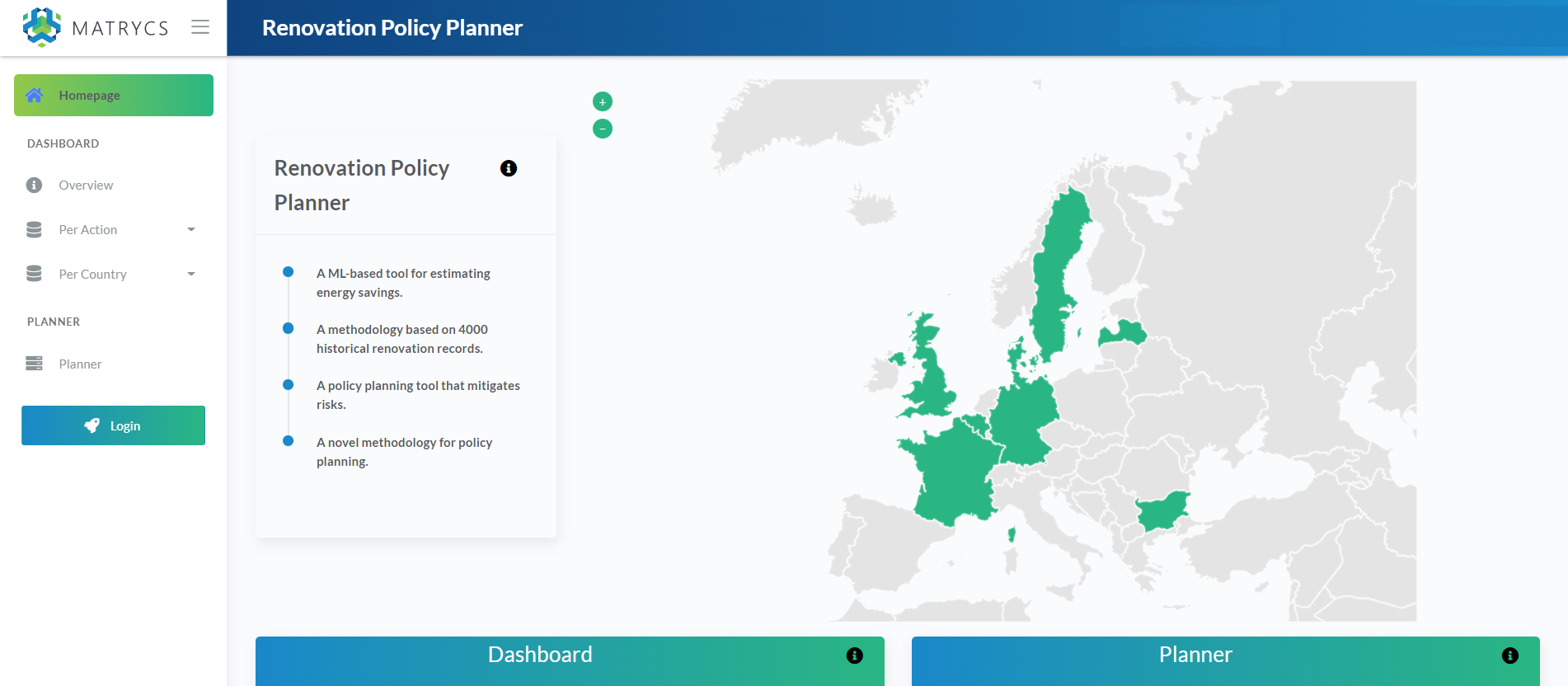According to Eurostat statistics, in 2020, buildings represent nearly 40% and households, alone, 27% of the total energy consumption in the EU. It is therefore clear that in a technologically advanced environment and with finite energy resources, it is of paramount importance to make use of the plethora of data and evolved techniques for the development and evolution of building sector energy efficiency strategies. Elissaios Sarmas, a PhD candidate at the Energy Policy Unit of the National Technical University of Athens is explaining how MATRYCS, the EU-funded project that Housing Europe is part of is doing this in practice.
The MATRYCS project (www.matrycs.eu), funded by the HORIZON 2020 EU’s research and innovation program, started in 2020 with the ambition to implement a platform aiming at improving energy efficiency and extending building lifecycle by providing a holistic analytics toolbox for enhanced energy performance management and policy-making at the building level.
Taking a closer look at the services that will be provided by the project upon its completion, we see a range of tools that will offer better analytical energy statistics of buildings, digital representation of physical buildings, state-of-the-art recommendation systems for policy-making, policy impact assessment and building efficiency investments. Housing, as part of the building sector, will certainly not remain unaffected by the beneficial influences that the application of MATRYCS methods is expected to have.
But how can the housing sector benefit from such a promising project? For a start, MATRYCS has managed to gather a wide range of big data through its large-scale pilots, including housing-specific ones. The housing sector is therefore one of the main research pillars that will benefit.
On the one hand, there is the European Union and its Member States, which can utilise the services developed to optimally define its energy policy in the housing sector, identifying on time energy issues that arise within its ranks and optimally allocating its resources. The European Union will therefore have appropriate data analytics and machine learning tools in its arsenal, for the proper mapping, forecasting, and management of building electricity networks, as well as specialised services to enable policymakers at national and European level to draw conclusions from previous actions, identify the suitable ones along with the optimal fund allocation towards energy efficiency measures in buildings. In this way, both the targeted modernisation of the energy networks across Europe and the desired degree of climate resiliency and energy sustainability in housing will be achieved.
On the other hand, we have the owners and users in the housing sector who will be on the one side the recipients of the policies implemented by the executive authorities, and on the other side, each one individually determining the optimal energy and economic policy for their home. The latter will be achieved by subsequently succeeding in expanding the use of the MATRYCS toolbox on a large scale. In this way. This will allow smart energy-efficient households to be developed across Europe, and at the same time energy resilient to finite energy resources and possible fluctuations in the energy sector, such as those currently taking place due to the war in Ukraine. The developed tool for energy efficiency investment planning combines machine learning, data analytics, and domain expertise in order to provide recommendations on energy efficiency financing and estimate energy savings of building refurbishments. The tool can be accessed at: http://matrycsanalytics.epu.ntua.gr:1716/
A beta version of the tool will be demonstrated in real life at the MATRYCS side event during the Renovation Summit organised by Housing Europe, Eurocities, and ECTP on November, 17. Save your seat to join us from 16:30 to 17:30 CET at the House of Dutch Provinces in Brussels.
In conclusion, it is worth mentioning the already significant efforts made by the European Union for the modernisation and energy upgrading of buildings, with a large part of its funding programmes aiming in this direction. MATRYCS therefore comes to support the executive and legislative powers of the European Union for a better understanding of the specific socio-economic contexts in which the energy transition takes place and enhances the energy efficient behaviour of the households.
